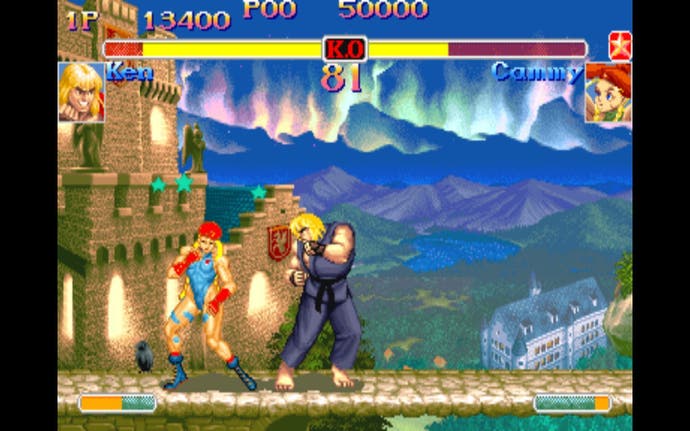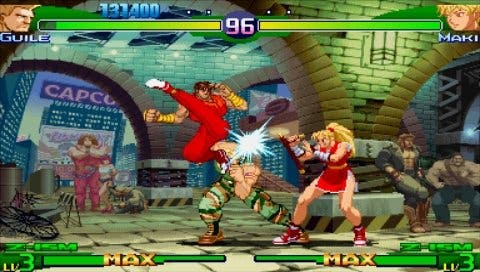Daigo Umehara: The King of Fighters
The Street Fighter world champion speaks.
Umehara's older sister, Hoyumi, with whom he'd play Dragon Quest and Final Fantasy from a young age, introduced Umehara to videogames. However, it was when he first visited an arcade that videogames turned from an interest to a passion. "My first visit to an arcade changed my life. It was such a sensational experience. At the time, everyone was playing Street Fighter II. The visual aspects of the game were impressive, but it was the fact I got to play with total strangers and connect with them through the game that enthralled me.
"Now, when I go to an arcade, I now probably fit in the middle to the upper-mid age group in the arcade community. But back then, I was easily the youngest player there. Everyone else was older than me, and I enjoyed talking to and learning different perspectives. A Japanese arcade is such a special place for me. It provided a community to interact with others that I would not have dealt with otherwise and an opportunity to learn from them."

Of course, in Japan videogame arcades aren't burdened with the social stigma of their American and European counterparts. But even so, as a young man from a respectable, middle-class family, I wonder how his parents reacted to his newfound passion, especially when it began to blossom into a vocation. "My parents are very generous, laidback people. My older sister was such a good kid that I think they got the idea that that's how little effort child rearing requires.
"They applied a similar laissez-faire approach to me, but I ended up doing everything opposite of what they wanted. Were they fully supportive of my increasing involvement of videogames? I'd say they were indifferent. They weren't particularly impressed when I started winning tournaments. Other people started looking up to me when I became the Japanese champion, but when I told my parents about my victory, they didn't care much. I think that indifference, and the way they continued to treat me in the exact same way no matter what I achieved, ensured I kept my feet on the ground, and could analyse and focus on myself. Without them, I don't think I'd be where I am."
As anyone who has committed themselves to learning and mastering a competitive fighting game knows, the learning curve leading up to true proficiency is measured in years, not weeks. I ask Umehara how the countless hours spent playing in arcades have affected his life. "When I was most involved in the game, I was in my late teens - which is most important time of life, right? I was playing every single day, at least 10 times the amount that I play now. I only did minimum of other activities. My life was school, sleep and play. Everything revolved around playing games.

"It was as though I could not live without them. I had separate friends inside and outside of my game life. When I visited the arcade, I met my game friends. Once I got to know of the different, appealingly mature world of the arcade community, my peer group became so uninteresting. Besides, people with the same interest share a lot of common sensibilities, and naturally it's just so much more fun to hang out with those who share your passions. That is how I slid deeper and deeper into the arcade culture." Despite Umehara's hard work, he failed to qualify for Japan's national championship, the GAMEST Cup, the first time he entered the competition in 1995. Two years later he returned, qualified, and went on to defeat Shin'ya Ōnuki to take the title of national champion.
The following year he won the official Capcom Street Fighter Alpha 3 championship in Japan, which resulted in his first invitation to play overseas in a face-off against the winner of the US championship, Alex Valle, in San Francisco. Umehara won the match two games to one, becoming the Street Fighter world champion at just 16 years old.
"The match against Alex Valle was my first time outside of Japan," he recalls. "Even though I had no idea about the skill level of US players, I sensed that Japanese players would be stronger. For some reason I was confident that I would win, even though I had no solid base for my assumption. I hadn't met any strong foreigners among those who I ran into time to time, and the US joysticks I had seen looked awful, thick at the top and tapered off at the bottom. They just seemed to lack finesse or precision. It was just my hunch that opponents who used such bad sticks could not be better than me.
